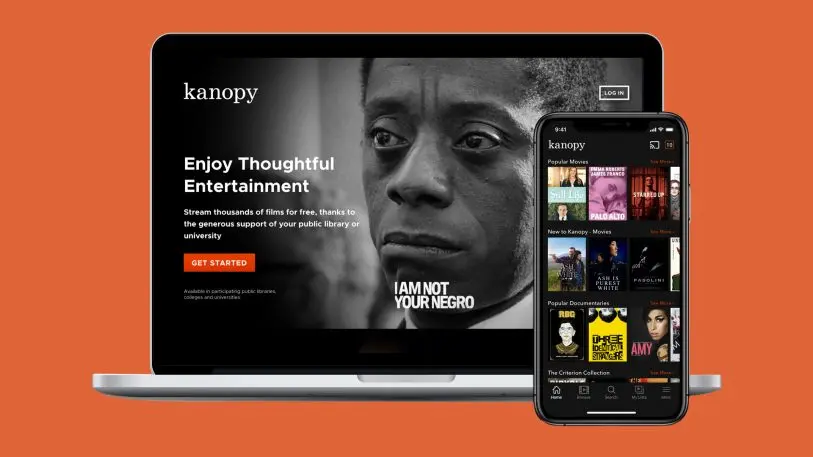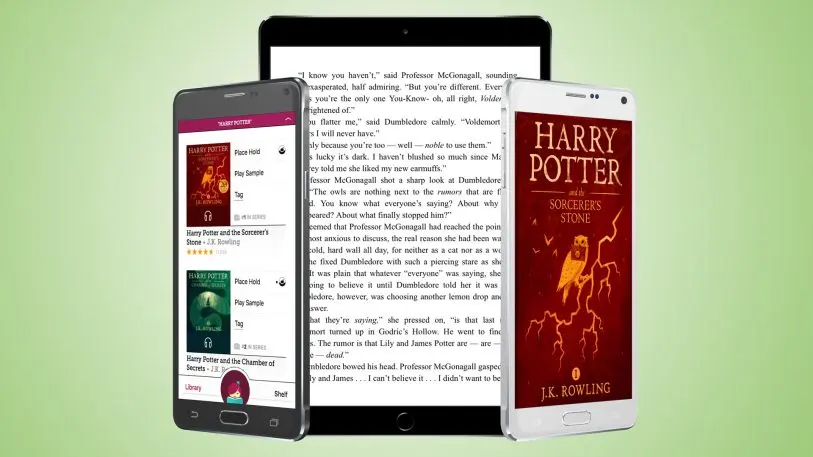If you haven’t visited your local public library lately, you might not realize that you no longer need to physically drop by to check out a book or a movie.
Thousands of public libraries now let their members check out e-books they can download on their smartphones, tablets, and e-readers. They also lend digital audiobooks anyone can listen to as they commute and streaming online movies to view on a computer, phone, or smart TV. Like other public library materials, they’re generally available for free to anyone with a library card.
But whether you’re a library or an individual fan, you can’t truly own digital materials the way you can own a printed book or a movie on DVD or VHS. Fans of e-books, music and video games have seen their collections become unplayable when publishers and distributors shut down servers. When it comes to libraries, licensing agreements largely dictated by publishers control when and how you can borrow materials, and some of those agreements are forcing public libraries on limited budgets to make tough choices about what they offer to the public. As libraries and publishers both look to adapt to a shifting media marketplace, library users can find what was once an excellent free resource for reading and viewing affected by agreements and industry policies outside their control.
While by many accounts e-book sales overall have plateaued in recent years, library e-book use is still on the rise: Rakuten OverDrive, the biggest platform providing e-books to library patrons, reported that its library customers around the world lent out 274 million digital books in 2018, up 22% from the previous year, including through its popular Libby app. Digital audiobooks lent through OverDrive similarly jumped 28% to 107 million, according to the company.

“They actually watch Kanopy by going down to the public library,” she says.
New challenges for digital media fans
But while people are increasingly looking to libraries to check out e-books and rent movies, those services may no longer be viable for publishers or affordable for libraries.
This summer, publishing giant Macmillan announced that starting November 1, library systems will only be able to buy one digital copy of every book for the first eight weeks that it’s out. That cap would apply equally to small town, single location libraries and to sprawling multibranch urban library systems, meaning that only a tiny fraction of readers in larger jurisdictions would be able to borrow the digital book during that time. Ordinarily, libraries might buy hundreds of digital copies of an expected bestseller.
Macmillan’s move drew criticism from major libraries and the American Library Association, which launched an online petition urging Macmillan not to implement the policy. So far, it’s drawn more than 89,000 signatures, but Macmillan hasn’t announced any changes to the program yet. A spokesperson for the company declined to comment.
This change could send wait times for popular books soaring. At the moment, librarians say they typically try to buy enough copies to keep the number of holds on a book manageable. For instance, Ed Brown, public information representative of the Nashville Public Library, where the petition drive was announced last month, says his library tries to keep a hold-to-copy ratio of at least six to one. That keeps wait times down to at most three and a half months, but Macmillan’s new policy would make that impossible during the first months of a new book’s release.
“If we’re limited to one copy of an e-book, we’re worried our patrons could be waiting up to a year to check out a popular e-book,” he says.
A challenge for librarians, says OverDrive founder and CEO Steve Potash, is that patrons may assume that it’s their fault that highly anticipated books aren’t available. “The library . . . looks like they are ill-informed or out of touch,” he says.
Streaming video costs have also been a challenge for some libraries. Kanopy charges public libraries $2 per video play, with half of that going to copyright holders. In June, the three major library systems in New York City announced they would stop offering Kanopy to their patrons. “We believe the cost of Kanopy makes it unsustainable for the Library and that our resources are better utilized purchasing more in-demand collections such as books and e-books,” said Caryl Matute, the New York Public Library’s interim chief branch library officer, in a statement at the time.
Humphrey, Kanopy’s CEO, says the company has offered detailed dashboards to track and estimate use and allows libraries to choose how many movies each cardholder can view per month. The company is still talking to the New York libraries to understand how to best meet their needs, she said. The New York Public Library declined to comment.
The complexity of owning digital media
Why is this happening? Library users don’t always realize that the business models for different types of digital materials are still evolving and can often be very different from how libraries distribute printed books or DVDs.
Historically, libraries bought materials through distributors that often charged them less than individual readers would pay at the local bookstore. Under U.S. law, libraries (and individuals who buy books) generally have the right to lend out their physical books as long and as often as they choose, with no additional payments to the author or the publisher.

Many that are available from major publishers come with licensing agreements that require each virtual copy to be essentially purchased anew after they’ve been lent out a certain number of times—say 26 lends—or after a certain amount of time has elapsed, explains OverDrive CEO Potash.
That makes e-book lending a more complicated proposition for libraries, since they can’t just let e-books sit on the shelves until they wear out. They need to decide when it’s worth repurchasing older e-books, even as they also maintain their still-popular print collections and buy copies of new releases in both formats.
“We haven’t really noticed a decline in people using the print collection,” says Ron Suszek, library services administrator at the San Antonio Public Library. “It’s been difficult for us to justify the rebuying of the digital content.”
Libraries may also be less apt to take gambles on up-and-coming authors if they worry their books may only get borrowed a few times before they expire and disappear from digital shelves, says Potash. “This is going to have a chilling effect on those authors getting exposure,” he says.
One possibility would be for Congress, which controls copyright law, to create some sort of standard royalty system for lending out e-books. In some other countries, authors and sometimes publishers receive government payments as physical books are lent out in libraries, with the details varying from nation to nation. But such a law has never been passed in the United States, and it’s unclear how much appetite there is for that to change any time soon.
Libraries have long been a valuable community resource, where anyone can access books and other media free of charge. But as content goes online and moves from a model based around ownership of physical copies to one governed by the fine print of licensing agreements, they may be increasingly constricted in what they can offer to the public.
Recognize your brand’s excellence by applying to this year’s Brands That Matter Awards before the early-rate deadline, May 3.
